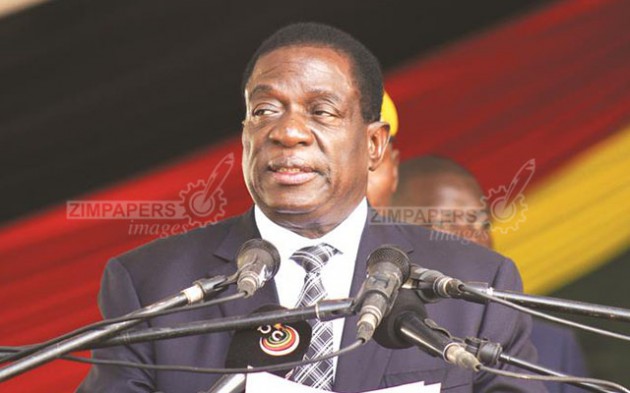President Mnangagwa, Zim’s national unity continuum
Richard Runyararo Mahomva Correspondent
Over the years, nation-building has been discordantly pervaded by divisive enterprises of split patriotic consciousness. Our academic and political discourse have been largely characterised by warring perspectives of national belonging.
To this end, colonial regional divides have also been used as emblematic justifications for the propagations of secessionist politics. At the same time, Government efforts to promote inclusive nationalism have suffered internal and opposition sabotage owing to weak ideological persuasion and commitment to values of national unity.
Reactionary historiography has also played a critical role in framing divisive imaginations of national belonging, save to say that the early independence insurgence of 1982 to 1987 has been conveniently manipulated to maintain selective memoirs to misguided entitlement by racist and tribal intellectuals. In the process, this has selectively led to the dismissal of what 22 December means in the history of Zimbabwe.
As such, it is important to reflect on the essence of Unity Day within the context of the current unfolding experiences of consolidating our national pride under the leadership of President Emmerson Mnangagwa. This neo-colonial framed paranoia towards national unity has also posed a threat to the unitary strength of pan-Africanism.
Paradigms of difference underpinned on race, ethnicity, class, gender and creed continue to impose primordial rifts to our lasting values of unity. To this effect, David Coltart and Judith Todd (in their biographies) have radically posited a re-membering which dismembers.
Race essentialism and selective amnesia have been manipulated to map the contours of a superficial state of national tension. In some sections of the academia and across the political divide, ethnicity has been used to voice divisive imaginations of national identity.
In the face of all these attempts to discredit the reality of our oneness, the rise of Cde Emmerson Mnangagwa as President of the Republic of Zimbabwe offers a refreshing opportunity for Zimbabwe to rethink the tensions attributed to Zimbabwean nationalism. This clearly comes from the President’s clarion call for objective policy-making aimed at promoting national development in his inauguration speech:
“Here at home, we must, however, appreciate the fact that over the years, our domestic politics had become poisoned, rancorous and polarising. My goal is to preside over a polity and run an administration that recognise strength in our diversity as a people, hoping that this position and well-meant stance will be reciprocated and radiated to cover all our groups, organisations and communities. We dare not squander the moment. At the end of the day, whatever we do or choose not to do must be intended to benefit all our people.”
Moreover, President Mnangagwa’s consistency in this regard has surged down to the ultimate direction he has prescribed as the revolutionary party’s role in nation-building during the recently held ZANU-PF Extraordinary Congress.
The President made it clear that ZANU-PF must reaffirm its position as a vanguard of national cohesion and unequivocally pose as an integral entity for consolidating the founding principles of our nation. The President’s intervention has further buttressed the need for reinventing nationalism beyond partisan limits.
This serves as a strategic roadmap as Zimbabwe is advancing towards a political culture which rewards diligence and disparages kleptocracy, factionalism, regionalism, racism, tribalism and sexism. In making reference to ZANU’s self-positioning in this context, Cde Mnangagwa has drawn his inspiration from the revolutionary party’s constitution.
“In this regard, Article 2 (Section 14) of our party’s constitution outlines the aims and objectives of our party as inter alia being ‘to oppose resolutely tribalism, regionalism, nepotism, corruption, racism, religious fanaticism, xenophobia and related intolerance, discrimination on the grounds of sex and all forms of exploitation of man by man in Zimbabwe.”
The position taken by His Excellency President Emmerson Mnangagwa provides a redemptive path to progressive citizen participation in national development outside narrow partisan terms.
“I am a President for Ndebeles, Shonas, Zezurus, Ndaus, Karangas, Manyikas, Vendas, the Chewas, Sothos. I am also the President for the Tongas, Tswanas, Xhosas, Khoisans, Shangaans, Kalangas, Nambyans and other races, all who are celebrated in our national Constitution.”
This stance is in tandem with the new Government’s mission of cultivating mass national loyalty which gives priority to patriotism instead of partisan affiliation.
This advent to rethinking national belonging further incentivised by the logic of the current citizen-military driven political transition. This is reflective of how the current establishment represents a reincarnated capture of our present by the past. This presages the relevance of the Chimurenga tradition as a source of nation-building.
As such, it can be argued that President Mnangagwa’s consistency in this direction will progressively revisit Zimbabwe’s contested nationalist question. Professor Sabelo Ndlovu-Gatsheni, a leading decoloniality scholar, has also affirmed this position as he argues that:
President Mnangagwa’s utterances are part of the needed pedagogical nationalism that is fundamentally a confidence builder and intrinsic ingredient of national healing after years of abandonment of the project of nation-building.
Nation-building requires recognition of differences and approaching them as resources and richness of our being a people. Secondly, we have to develop genuine nationalism and not pay lip-service to this cause.
Thirdly, there is no successful nation-building without creative pedagogical nationalism founded on deep love of the nation to the extent of being prepared to sacrifice one’s life for it.
My worry is the abuse of nationalism by bureaucratic bourgeois bent on a parasitic manner of manipulating the state to benefit themselves, their families, extended clients and hangers-on.
Those are charlatans and we must unmask them with no apology. Therefore, as we continue to engage, construct and deconstruct what it means to be Zimbabwean at this moment; the liberation legacy must be an exclusively embraced manual and not selective inclinations to its tenets.
On that note, it’s imperative for Zimbabweans to vigilantly subscribe ideas which cultivate unity other than division and half-hearted patriotism. Richard Mahomva is an independent researcher and a literature aficionado interested in architecture of governance in Africa and political theory.
- Feedback: [email protected]







Comments